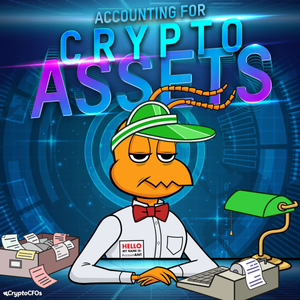
Fundamentals: Securing Crypto Assets
12/22/22 • 3 min
Now that we have a better grasp of how wallets function for crypto assets, we need to understand the inextricable link between decentralization, self-custody, and security. In the world of blockchain and cryptocurrency, no bank holds and secures your funds. You are the bank. As a result, you rely on varied levels of security based on the context of the usage of funds.
A real-world example of this concept is the difference between a wallet you carry in your pocket and a bank vault. Obviously, the money kept in a wallet is less secure than money stored in a bank vault, but the sacrificed security of funds is offset by increased convenience. To reduce the risk, a nominal amount of a person’s total wealth is carried in their pocket. The same principle applies to crypto assets.
Now that we have a better grasp of how wallets function for crypto assets, we need to understand the inextricable link between decentralization, self-custody, and security. In the world of blockchain and cryptocurrency, no bank holds and secures your funds. You are the bank. As a result, you rely on varied levels of security based on the context of the usage of funds.
A real-world example of this concept is the difference between a wallet you carry in your pocket and a bank vault. Obviously, the money kept in a wallet is less secure than money stored in a bank vault, but the sacrificed security of funds is offset by increased convenience. To reduce the risk, a nominal amount of a person’s total wealth is carried in their pocket. The same principle applies to crypto assets.
Previous Episode

Fundamentals: Wallets
In the world of cryptocurrencies, wallets act as “bank accounts.” Cryptocurrency wallets consist of a private key and a public key. The private key secures access to your wallet, while the public key is the address that allows people and companies to send funds to your wallet.
One of the major trade-offs with cryptocurrency wallets vs. traditional bank accounts is that since you are responsible for custody and security of your funds, no one can help you recover funds if you lose your account information. The private key secures access to your wallet; if this or the recovery phrase associated with it are lost, it will be impossible to recover the funds in your wallet.
On the flip side, on a decentralized network, no person or government can freeze or seize your funds because they have no way to access or control this information. In addition to privacy protection, this benefit allows people and businesses that operate in legally conflicted industries (such as cannabis, which often runs into issues with the banking system), to process payments and securely store funds in a much more cost-effective and safe way. Laws enacted by governments may compel a person or entity to turn over private keys as part of a plea agreement or in a criminal case, but these situations require action from you rather than being subjected to seizure.
A major difference between a traditional bank account and a crypto wallet is that, unlike a traditional bank account that can operate on a push/pull function, cryptocurrency wallets are push only. Every transaction must be approved and initiated by the person who holds access to the wallet via the private keys, so you can only send funds and cannot set up recurring pull transactions such as subscriptions that auto-debit your account.
Next Episode

Fundamentals: Consensus Mechanisms
If you like this episode you’ll love
Episode Comments
Generate a badge
Get a badge for your website that links back to this episode
<a href="https://goodpods.com/podcasts/accounting-for-crypto-assets-481294/fundamentals-securing-crypto-assets-64393799"> <img src="https://storage.googleapis.com/goodpods-images-bucket/badges/generic-badge-1.svg" alt="listen to fundamentals: securing crypto assets on goodpods" style="width: 225px" /> </a>
Copy




